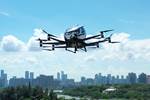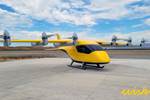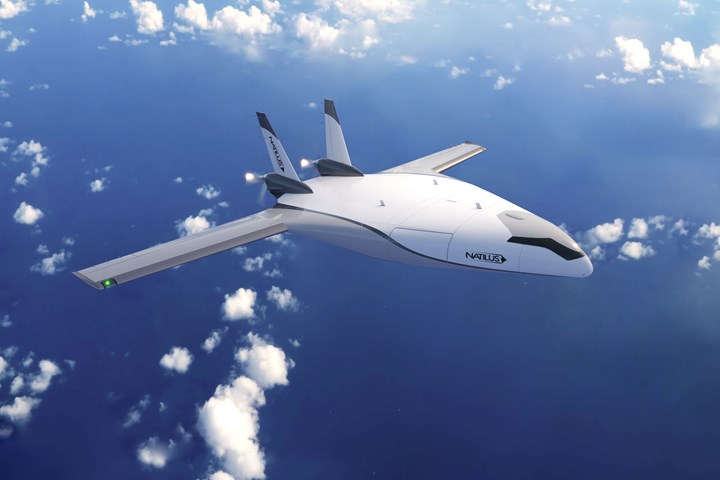Natilus partners with Janicki for blended wing autonomous aircraft
The Tier 1 supplier will design, fabricate and provide quality assurance of primary composite structures for the Natilus N3.8T prototype, to be used for air freight transport.
Startup company Natilus Inc. (San Diego, Calif., U.S.) is producing what it believes is the world’s first purposefully designed and manufactured autonomous aircraft for air freight transport, the Natilus N3.8T. As a big step forward, Natilus announced in November 2022 that it has partnered with Tier 1 supplier Janicki Industries (Sedro-Woolley, Wash., U.S.) for composite part design and fabrication.
Through Natilus’ design and development of a mostly composite, blended-wing body, autonomous aircraft, the company says it will provide customers with double the cargo volume for each trip, while simultaneously reducing up to 60% of today’s cargo transport cost. In addition, the technology to be used on the N3.8T, and the distinctive shape of the aircraft’s blended wing body, enables a 50% reduced carbon footprint per vehicle, and a clear path to zero emissions with hydrogen. Natilus’ N3.8T is scheduled to fly in 2024.
“We selected Janicki because they are a family-owned and operated company, founded and run by engineers with the highest qualifications and experience in designing large-scale, high-precision prototypes, tools and production parts,” Natilus CEO Aleksey Matyushev says.
Janicki also shares the Natilus commitment to produce the most advanced and sustainable products, while being responsible stewards of the environment, instituting practices that protect the environment through continual improvements to save fuel and water, reduce waste, air emissions, noise and material consumption. For example, in 2011, Janicki worked with the Bill and Melinda Gates Foundation to create a low-cost waste treatment plant, later establishing sister company Sedron Technologies.
“Janicki is pleased to partner with Natilus on the N3.8T prototype,” John Janicki, president of Janicki, adds. “Autonomous aircraft are the future of the air freight industry.”
Related Content
-
Combining multifunctional thermoplastic composites, additive manufacturing for next-gen airframe structures
The DOMMINIO project combines AFP with 3D printed gyroid cores, embedded SHM sensors and smart materials for induction-driven disassembly of parts at end of life.
-
Plant tour: Middle River Aerostructure Systems, Baltimore, Md., U.S.
The historic Martin Aircraft factory is advancing digitized automation for more sustainable production of composite aerostructures.
-
Manufacturing the MFFD thermoplastic composite fuselage
Demonstrator’s upper, lower shells and assembly prove materials and new processes for lighter, cheaper and more sustainable high-rate future aircraft.
















